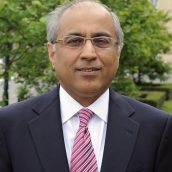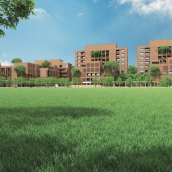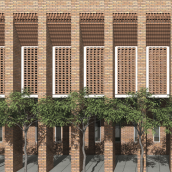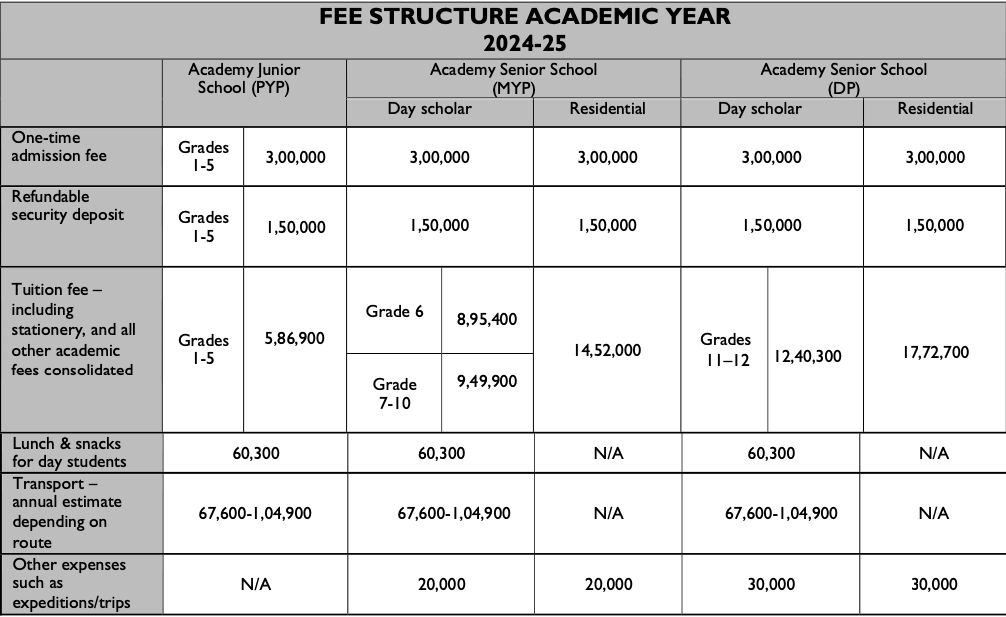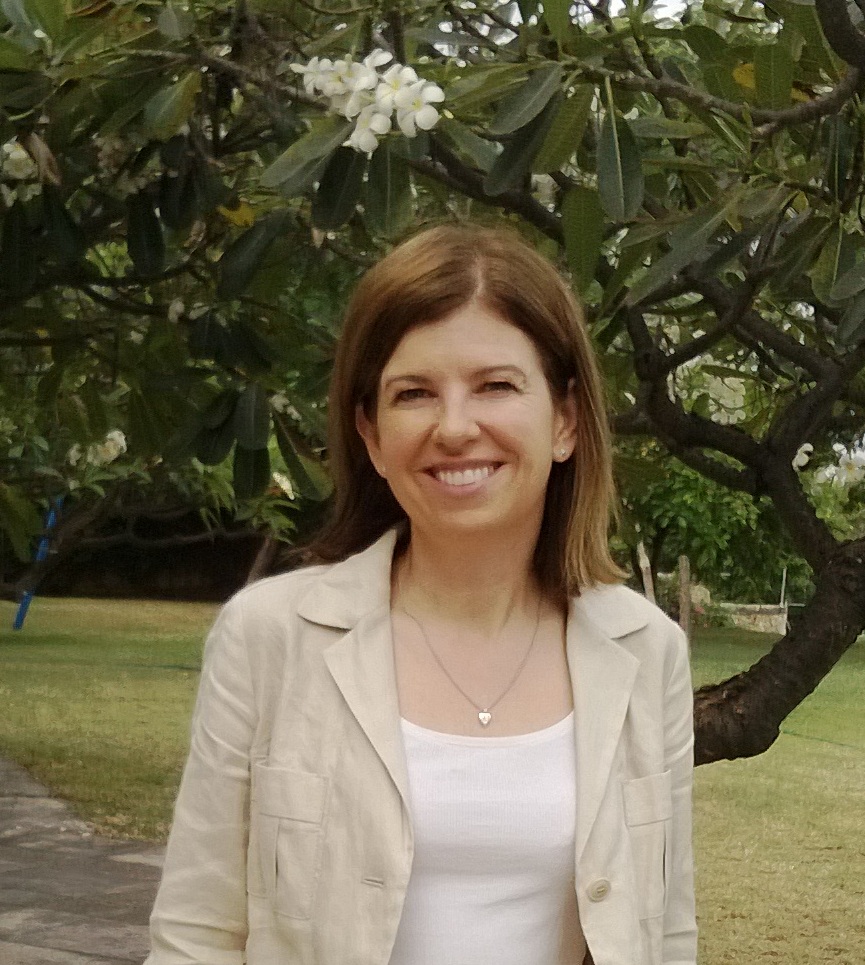Photography Competition - 2015
Ontario Secondment
Director's Welcome
Director of AcademiesThe Aga Khan Academies is a network of schools being established by His Highness the Aga Khan.
As the Director of Academies, I have been entrusted with His Highness’s extraordinary vision for the Academies as a global learning community, where young people develop the capacity to become future leaders of civil society.
The underlying idea of the Aga Khan Academies network is to concentrate substantial resources on those exceptional individuals – students and teachers – who have the potential to transform society. When provided with a world-class education, exceptional students from any background can achieve their significant potential and in so doing improve their lives, the lives of their families, their communities, their country and the world.
Each Aga Khan Academy will reach out to students of all backgrounds, regardless of culture, race, religion or financial circumstance.
The Academies follow the International Baccalaureate (IB) curriculum, ensuring a global standard of educational excellence and external validation through the annual IB Diploma exams.
The Academies also work to enhance the quality of teaching, the base on which good education rests. Each Aga Khan Academy will provide professional development programmes for teachers and school leaders from within the Academy as well as from government and other schools.
The students in our existing Academies are already achieving exceptional results across domains spanning academics, athletics and the arts. And our alumni, many of whom attend leading universities around the world, are demonstrating a deep sense of social responsibility and a commitment to return to serve their home countries.
Ultimately, we hope that the qualities of good leadership – sound moral judgment, self-discipline, a pluralistic outlook and civic responsibility – are the qualities that will distinguish Aga Khan Academy graduates.
"Our goal, then, is not to provide special education for a privileged elite – but to provide an exceptional education for the truly exceptional." I invite you to explore our website further to learn more about the Aga Khan Academies and the unique and innovative programme they offer.
With warm wishes,
Salim A.L. Bhatia
Director of Academies
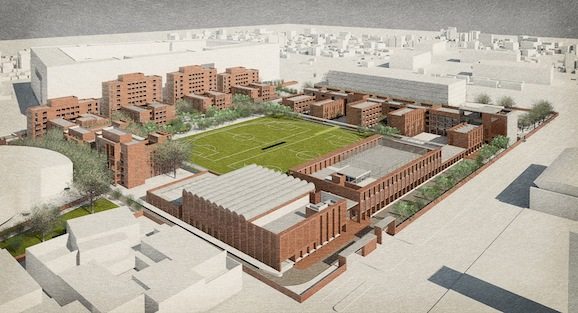
The Aga Khan Academy Dhaka
“This new Academy will be an important node in a network of 18 schools throughout the developing world, providing world class education for young men and women from all backgrounds, irrespective of ability to pay. It will be a remarkable place to go to school.”
His Highness the Aga Khan, Dhaka, Bangladesh, 20 May 2008
Introduction
The award-winning Aga Khan Academy Dhaka represents a significant investment in education by the Aga Khan Development Network for the benefit of Bangladesh. It will become a new national asset for the whole country – and for its broad educational community.
This not-for-profit school will be part of an integrated network of Aga Khan Academies located across 14 countries. The Academy is being established to provide exceptional students with an outstanding education to prepare them for leadership roles in Bangladesh and across the world. Students are selected based on merit, regardless of socio-economic background, gender, race or religion. This ensures that talented students from all sectors of Bangladeshi society can access a world-class education.
Through its Professional Development Centre (PDC), the Academy will also act as a regional hub for academic innovation and excellence. The PDC is dedicated to training new teachers to the highest standards while offering veteran teachers the opportunity to stay on the cutting edge of education through research and practice. This expertise is then shared to enhance teaching and learning at government and other schools.
Award-Winning Design
The Aga Khan Academy will be located on a 20-acre plot in Bashundara, Dhaka and will enrol 750 students (K–12) with a capacity to expand to 1,200. Residential facilities will be provided for students and staff to allow for wide participation and enable a diverse learning community. The school has been designed by renowned international architects to ensure the best possible educational experience in a physical environment that resonates with local Bangladeshi culture and architectural traditions.
The design for the Aga Khan Academy Dhaka received the award for best ‘Future Education’ project at the World Architecture Festival 2017, held on 15-17 November in Berlin, Germany. The award recognises the excellence of the school’s design as well as the project’s intention to generate positive social impact, which arises from the mission and values of the Aga Khan Academies and the wider Aga Khan Development Network (AKDN). The vision of the Academies is to develop future leaders with the skills and knowledge to positively support development in their own societies.
Construction of the Academy begun in 2018, with classes for students planned to start in 2020.
Educating Future Leaders
The Aga Khan Academy in Dhaka will develop leaders with a pluralistic sensibility – individuals who are proudly Bangladeshi yet also connected to the larger, cosmopolitan world. The Academies programme, which is based on the highly regarded International Baccalaureate (IB) curriculum, prepares students to succeed in a globally competitive world while also connecting them to their own language, literature, history and heritage. As they grow to take on leadership roles, this education uniquely prepares them to address the issues facing their communities with solutions that draw on global best practices and are appropriate to the local context. As language is essential to leadership, the Aga Khan Academy will provide bilingual education in English and Bangla, ensuring that students maintain strong ties to their roots. Service learning projects also cultivate the ethic of serving one’s community. In helping their neighboring communities, students are exposed to the challenges they face and learn to come up with contextually appropriate solutions.
Global Linkages
The Aga Khan Academy Dhaka will be the fourth school in a planned network of 18 campuses in Africa, South and Central Asia, and the Middle East, following Mombasa (Kenya), Hyderabad (India) and Maputo (Mozambique). Academy teachers and students will be able to collaborate across this network via technology to share experiences with others from different cultures. Teacher exchanges between schools provide exposure to different learning environments and opportunities to share best practices with colleagues. Student exchanges between schools are also planned to allow them to experience another culture first hand and further their experience of living in a pluralistic world.
International Partners
Education at an Aga Khan Academy is enriched by unique academic and co-curricular partnerships. The Academies work closely with AKDN agencies across many areas including for curricular innovation and to offer students in-depth service learning and internship experiences. Partnerships with internationally renowned institutions contribute to the quality of the Academies’ curriculum and professional development programmes, and ensure that the Academies maintain and enhance their international standing. Partners include the International Baccalaureate, the University of British Columbia, Concordia University, the Government of Ontario (Canada) and Microsoft, with the Academies in Mombasa and Hyderabad having both been recognised as Microsoft Showcase Schools.
Pinto Belo João: A determined teacher and a collaborative planner
“Being a teacher is not easy, because we have to teach and learn every day. I chose a career in teaching because I like to share what I know with others, especially young people, to help them to overcome the challenges in life. Being a teacher is like taking care of something special, so I decided to take care of that special thing, walking together in order to discover the world around us.”
Pinto Belo João is a grade 2 teacher at the Aga Khan Academy in Maputo. Born in Maputo, Mozambique, Pinto attended a teacher training course in Matola in 2007 where he became a primary teacher and then attended Pedagogical University in 2011 to study education. He came to the Academy as part of the Teacher Preparation Programme (TPP), which was established by the Aga Khan Academies to train recent teacher graduates to become International Baccalaureate (IB) teachers.
“Honestly I didn’t know many things about the Academy before I joined, but I always was eager to learn and grow professionally,” says Pinto. Through the Aga Khan Academy, Pinto says he has grown professionally in terms of learning new approaches to teaching and learning, trying new things and giving himself a chance to learn more. “Through professional development, the Academy helped me become a more effective teacher and a collaborative planner,” he says proudly.For Pinto, the most rewarding aspect of the Aga Khan Academy is teaching while surrounded by experts. This environment has given him the opportunity to try new things and granted him time to reflect on teaching strategies. This has been both valuable and powerful for Pinto as it allowed him to share experiences related to classes and receive guidance and support from others. What Pinto really likes about the Academy is the integration of the Aga Khan Curricular Strands. “In my opinion these Strands make us unique and different from others,” he says.
Reflecting on enlightening experiences at the Academy, Pinto narrates a particular day when he was teaching mathematics through games. He says that while he was giving instructions on how to play the game he was surprised to see the students already playing the game before he could even finish explaining. “I learned something that day: we should never underestimate our students. Sometimes we think that we have to teach something, but the students already know it. We need to be careful in our approaches,” Pinto remarks.
In this way, Pinto has learnt profoundly from his students and feels that the teacher-student relationship, reinforced by trust, is of the utmost importance. “We need to establish trust so that the process runs toward success both inside and outside the classroom,” he says.Relationships in the classroom must also involve parents – Pinto knows the importance and necessity of parental involvement in the education of their children. He regularly updates the parents about what they do in class and about their school trips – he also ensures that he shows parents the newsletter with stories of learning from the classroom. Some of the homework Pinto assigns includes parent personal experiences that they can share with their children.
At the Academy, Pinto says they try as much as they can to involve all students in activities and give each of them a role in groups to make them appreciate each other’s abilities. “By promoting activities like social community, [this] makes the students reflect on their own actions,” he remarks. Pinto explains that students come from different backgrounds and nationalities and that this is what makes the residential environment multicultural and promotes pluralism. When the students are exposed to this environment, Pinto says, “They learn more from each other and respect diversity. It is a great experience for them.” Ensuring a climate of pluralism on campus is not an easy task, Pinto says. “But through student’s responsibilities, we can ensure that they are working together.”
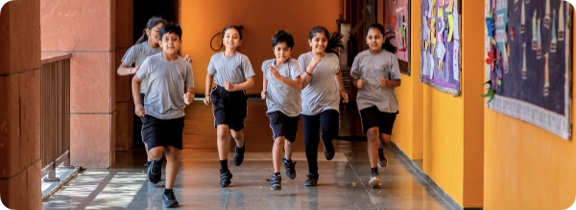
Fee Structure
Please click here to download the Fee Structure for the 2024-25 academic year.
NOTES:
- A one-time, non-refundable admission fee is payable for students enrolling for the first time. The admission fee must be paid to secure a place for a child at the Academy. This cannot be deferred or paid in instalments. The due date is one week after the offer has been accepted.
- A one-time refundable security deposit is also payable on acceptance of admission and should be paid together with the admission fee mentioned above. It is refundable when a student leaves the Academy as long as the required notice has been given in writing and “No Dues” clearance is obtained from the Academy. No interest is payable on this deposit.
- A sibling discount on a tuition fee of 5% will be applicable for second and subsequent children.
- The total fees for the academic year may be paid in full with an early-payment discount of 3% on or before 31 July 2024.
- The fee is payable on due dates as mentioned in the invoice/memo for the services.
- The Academy will charge a monthly surcharge of 2% on outstanding dues older than 30 days. In case the full fee that is due is not paid within one month period following the deadline, the student will not be allowed to attend classes or participate in other activities undertaken by the Academy.
- The Total Fee includes course fees, use of essential course books, library books, IT and science laboratory equipment and certain classroom supplies. The fees do not include uniform costs.
- Exam Fees for the IB Middle Years Programme and the Diploma Programme will be billed separately based on the actual fee issued by the International Baccalaureate Organization (IBO).
- Parents of returning students will be invoiced four to six weeks prior to the new Academic Year.
- The Academy does not accept cash for Fee payments. All payments must be made by Direct Bank Deposit, Bank Transfer, Cheque or Demand Draft even if the payment is being made by a third party such as a sponsoring organization. Parents must provide the Finance Office (finance@agakhanacademies.org), with a hard or an electronic copy of proof of payment showing the student's full name and the student identification number within 15 days of fund transfer for issuance of payment receipt. The absence of this information may delay crediting the fees reflected on your account in our system.
- Parents are responsible for ensuring that the fee payments are made into the correct bank account of the Academy. In the event of any change in bank account details, the changes will be communicated to parents in writing via official communication from the Academy with new payment bank details.
- If a student wishes to leave the Academy, one term’s advance notice of withdrawal must be given in writing, or one term’s worth of the annual fees will be due and payable. School clearance will not be possible until all outstanding dues are settled in full. Please refer to the points for withdrawal under number 12 in the PDF document above.
- The Academy reserves the right to withhold results, school certificates, transcripts or any other information and/or documents until all outstanding dues are settled in full.
- Admitted students, who demonstrate financial need and duly fill in and submit the application along with required supporting documents within the stipulated time, can be considered for Financial Aid. An independent Financial Aid Committee is responsible for reviewing and approving any request for Financial Aid by students.
- The above terms and conditions may be modified or new terms may apply to reflect changes in the law or our services. For further information, please contact us at admissions.hyderabad@agakhanacademies.org.
- Please note that the Fee Structure is subject to annual review.
